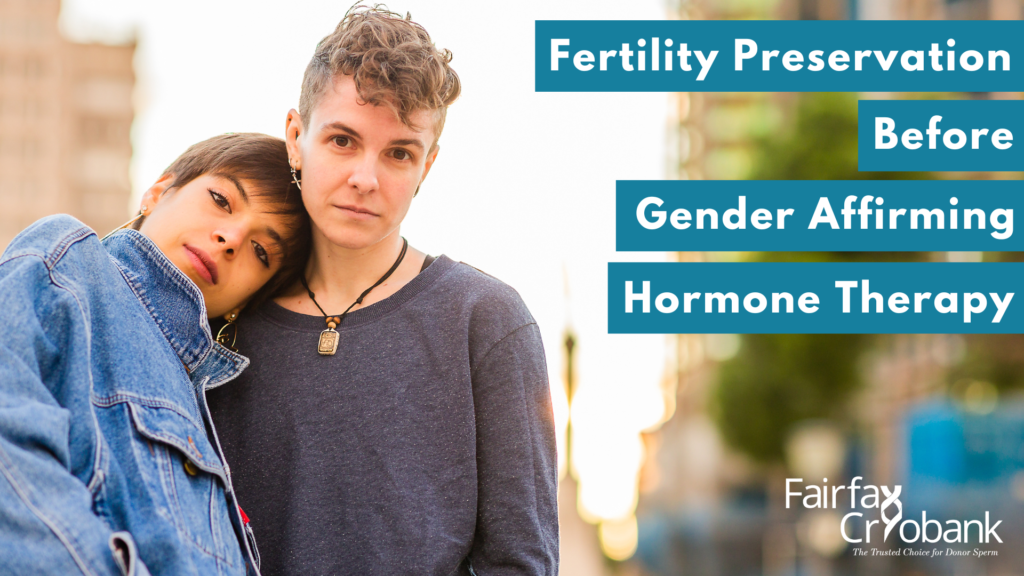Fertility Preservation Before Gender Affirming Hormone Therapy (GAHT)
Read more about options to preserve your fertility before Gender Affirming Hormone Therapy (GAHT).

Gender Affirming Hormone Therapy (GAHT) is hormonal medication to initiate and maintain medical gender transition. For trans folks who choose to pursue medical transition, GAHT is the way to achieve the physical changes they desire for their bodies. GAHT is a liberatory medical practice that affirms humanity and agency for trans people.
If you or your partner is trans and are considering or receiving GAHT, it’s important to understand that hormone therapy impacts your fertility. There are choices you can make to preserve your future family-building options, so it’s not a matter of GAHT or fertility—it’s a matter of getting all the information you need to make the choices that feel right for you.
Preserving fertility before GAHT
If you’re medically transitioning and know you want to have biological children now or in the future (or if you’re not sure but want to keep the possibility open), the first step is understanding exactly what your options are. Here, we’ll explore those options by what type of GAHT you are pursuing:
- Folks using testosterone
For folks on testosterone therapy, it’s important to note that it is very possible to become pregnant after (or, for some people, even during) GAHT. If your medical transition will include a hysterectomy, trachelectomy, salpingectomy and/or oophorectomy, the time to harvest and preserve your eggs is before having those procedures. You can work with a fertility specialist to harvest and freeze your eggs for partner or surrogate IVF.
Egg harvesting is a medically involved process that requires fertility treatment to create a specific hormonal state, so if you’ve already started testosterone, you’ll need to pause your GAHT for the period of time that you’re undergoing the fertility treatments. Afterwards, you can resume again.
- Folks using estrogen
For folks on estrogen, fertility preservation is simpler—but it’s more critical that it take place before you initiate GAHT, as the long-term effects of exogenous hormones like estradiol and anti-androgens can sometimes have a permanent effect on fertility, as does surgical transition through gonadectomy.
If you’re post-pubescent and haven’t yet started GAHT, it’s simple and affordable to preserve a sperm sample that will allow you and a current or future partner, or a surrogate, to have your biological child.
You can produce a sample via masturbation, or, if that isn’t a viable or comfortable option for you, you can consult with a reproductive endocrinologist who can perform a procedure in which sperm is directly removed from your body. (It’s worth noting that this second kind of sample can be used for IVF and ICSI, but cannot be used for insemination.)

Sperm banking
Because of laws that regulate how different samples are stored and used, you’ll need to decide at the time you bank your sample how you want to use it in the future. If you want to bank it for use with a sexually intimate recipient (e.g., your future partner), you’re known as a Client Depositor.
If, on the other hand, you’re banking your sample for use in the future with a non-sexually intimate recipient (e.g., a surrogate or gestational carrier), you’re known as a Directed Donor. The FDA has specific rules about how Directed Donor (also known as “known donor”) sperm is stored and released), so your sperm bank will ask you to make this decision at the time of banking.
Resources to support your needs
As you pursue the GAHT that supports and affirms your identity, know that you deserve the family of your dreams, too. Resources like LGBTQ+-affirming sperm banks and gender-affirming reproductive providers are out there to listen to what you want and need, and to serve and uplift you as you build your best life.







